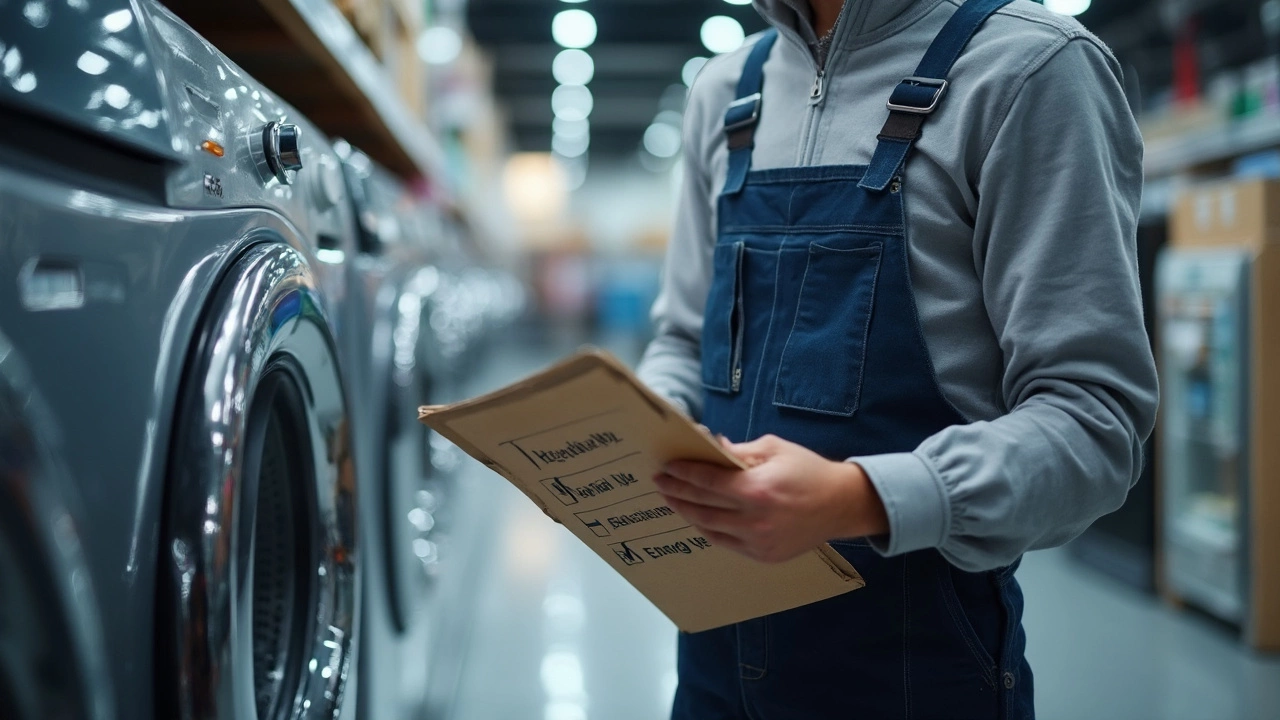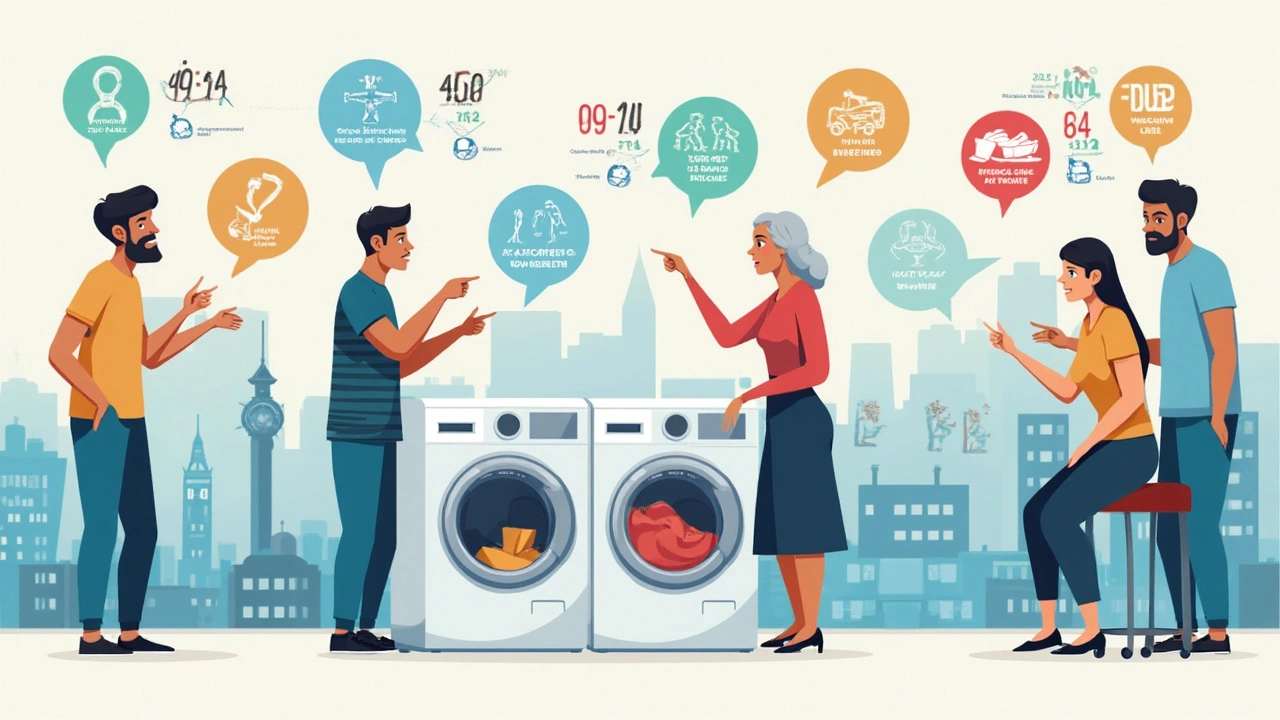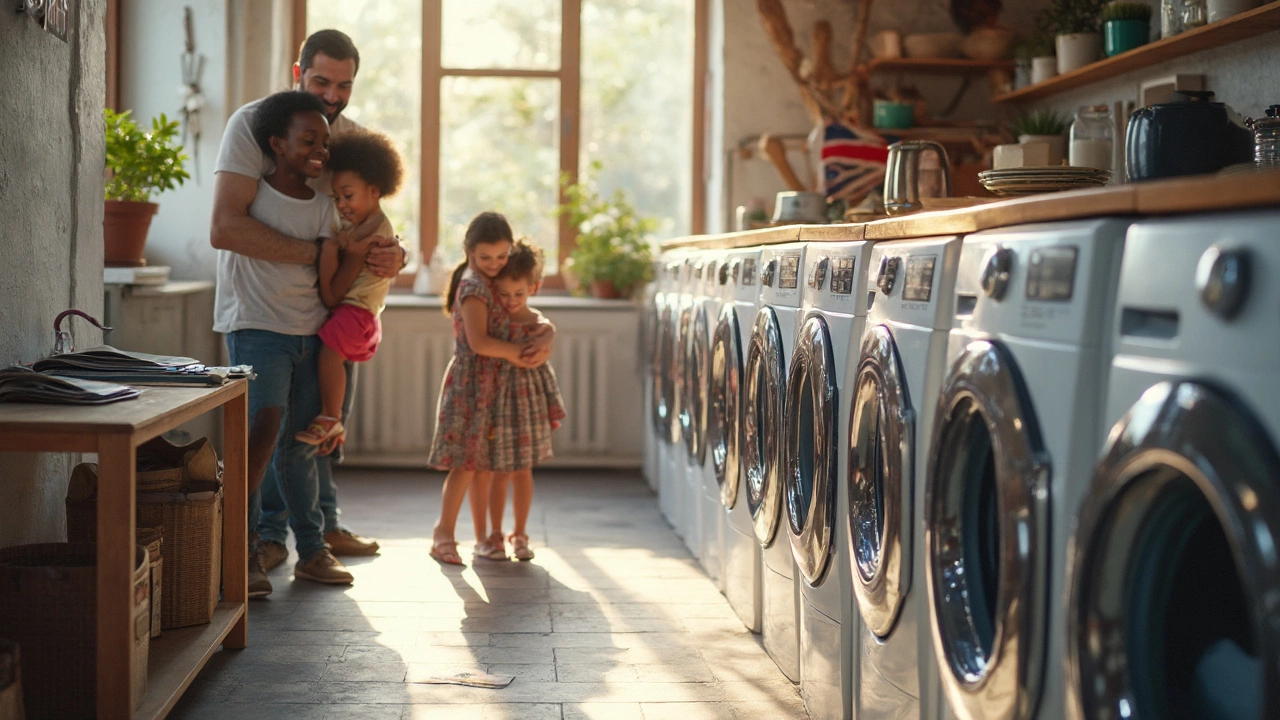Imagine tossing your favourite shirt into the wash, trusting it’ll come out spotless without needing to cross your fingers. That’s the promise buyers chase when hunting for washing machines in 2025. There’s an overwhelming lineup these days—lots of tech, boastful marketing, and user reviews that swing between love letters and rants. Picking a brand isn’t just about going for the most expensive sticker or the first thing you see at Harvey Norman. It’s about knowing what genuinely works, what lasts, and what does the job without stress (or eating your socks).
Why Choosing the Right Brand Actually Matters
Let’s get brutally honest: not all machines are built equal, and some brands look pretty on the outside but are real duds inside. Getting stuck with a lemon is the worst feeling, especially when you’ve spent over two grand for a machine that stops mid-spin. Modern washing machines live way more complicated lives than older models—multiple cycles, smart sensors, Wi-Fi, and eco settings. Reliability now means a lot more than just not flooding your laundry. A Consumer NZ survey from late 2024 showed almost 18% of Kiwi households reported issues with their washing machine in the first three years. Even big names had their fair share of complaints, which proves that brand matters if you’re keen to avoid constant repairs or calling up customer service for the third time in a month.
Energy efficiency brings another layer to the decision. New Zealand’s power prices shot up again in April 2025 (Vector and Genesis, I’m looking at you), so a machine with a high star rating actually helps keep bills tame. On average, a new 9kg front loader uses about 220 kWh of power a year, compared to 380 kWh for older top loaders—almost double the savings.
But it’s not just about reliability and power use—some brands sneak in clever wash cycles, steamer settings to knock out dust mites, or app integration for when you want to control your machine from the cricket. The trick is, do those features work well over time? Does the support team actually answer your emails? Does the dryer function dry fully or just make stuff damp? Brand reputation signals who’s investing in solid gear—and who’s winging it with shiny plastic knobs.
The Brands Kiwis Actually Trust (And the Surprising Underdogs)
If you pop into any Wellington appliance shop today, you’ll see the usual suspects: Fisher & Paykel, Bosch, Samsung, LG, and Miele. Each brings something different—some nail reliability, others splash out on tech.
| Brand | Country | Avg. Price (NZD) | Avg. User Rating | Warranty |
|---|---|---|---|---|
| Fisher & Paykel | New Zealand | $1,200—$2,200 | 4.2/5 | 2-5 years |
| Bosch | Germany | $1,400—$2,400 | 4.5/5 | 2-10 years |
| Miele | Germany | $2,500—$4,000 | 4.8/5 | 2-10 years |
| Samsung | Korea | $1,000—$2,000 | 4.1/5 | 1-2 years |
| LG | Korea | $999—$1,950 | 4.3/5 | 2-5 years |
| Haier | China | $750—$1,500 | 4.0/5 | 2 years |
Fisher & Paykel stands out with their SmartDrive motors—those things are nearly silent and rarely break down. They’ve got good aftercare here since, well, they’re Kiwi-made. Bosch and Miele are the two German powerhouses that are famous for never-give-up engineering (plus, Miele has that “tested for 20 years” badge which is legit).
Now, a lot of people are surprised to hear Haier ranking decently, especially because it’s budget-friendly. In the last three years, Haier quietly shipped a ton of washers that actually delivered without fuss, and repairs didn’t break the bank. Samsung and LG are the kings of tech—you’ll find washers with more cycles than you’ll probably ever use, steam modes, and mobile notifications, but sometimes that flashiness hides a “looks good but breaks early” vibe. Consumer NZ rated Bosch No.1 in satisfaction in 2024, but Miele snagged the “most likely to last 15 years or more” score.
Don’t ignore the underdog brands either. Panasonic has a cult following for mid-sized apartments due to solid build and compact models. Euromaid is only now gaining ground thanks to low prices and okay reliability, but you get what you pay for. Indesit and Beko? Budget option for landlords, yes—but for a busy family, maybe not the call unless you’re ready for mid-life repairs.

Features You Actually Need (And Which Ones Are Just Gimmicks)
Brands love stacking the spec sheets with jargon, but it’s easy to waste money on things you’ll never touch. Here’s the deal: for most households, the most valued features are easy-to-use cycles, reliable spin speeds, and quick wash options. Big loads and wool/delicate cycles matter for families, especially here in Wellington with all the sport kit, school uniforms, and muddy winter gear.
If you’re buying for a flat or a couple, don’t go overboard with a 12kg mammoth. For singles or pairs, 7-8kg is sweet. Bigger families: 9kg or up. Bosch models let you add laundry mid-cycle (AddWash), which is great if you always find an odd sock after you push start. Miele’s TwinDos does auto-dosing for detergent, which means you never overpour and waste soap.
Now, does Wi-Fi control actually matter? Depends. For most, it’s a neat trick, but nothing beats reliable water and energy use. Steamer functions? Awesome for allergies and dust mites—only if the brand nails the tech. Don’t chase a million programs—most buyers stick to three or four washes anyway.
Trusted models like the Bosch Serie 8 and Fisher & Paykel WH1260 employ clever sensors that weigh loads and adjust energy use. That seriously cuts down bills without you having to think about it. That’s a feature worth paying for. Pause cycle, delay timers, and anti-vibration pads are minor but helpful touches.
One hidden gem: machines that actually rinse detergent out properly, like LG’s AI Direct Drive range, which got high marks in Aussie Choice tests last year. People with skin sensitivities will spot the difference after a couple of washes. Quick tip: skip the “eco drum clean” cycle—most are just hot washes with a label. Running a 90°C cycle every month does more for hygiene than any smart feature.
Longevity, Maintenance, and Warranty: Separating the Best from the Rest
It’s wild how many buyers ignore warranty until something goes wrong. Bosch and Miele kill it here, often offering up to 10 years on major parts, while most others tap out at 2-5. Keep an eye on what’s covered—motors, electronics, and drums are the ones you want warranty on. The difference can mean the machine pays for itself twice over if something fails.
A Consumer NZ report from February 2025 said the best washing machine brands have a close link to good support: “Brands with easy-access spare parts and real, local helplines keep customers happiest long-term.” Half my mates swear by Fisher & Paykel because they can actually get parts within 48 hours. Miele keeps stock for 20+ years. At the other end, Samsung and Haier have shorter parts lifespans—worth thinking about.
Daily use habits make a massive difference to lifespan. Leave your door cracked open to let the drum dry; it stops that stinky mildew. Clean out the filter every 2-3 months (take it from someone who pulled out half a pack of rubber bands and $7 in coins last summer). Avoid slamming loads in above the stated max—it’ll kill shocks and bearings quick. Hard water isn’t a big deal in Wellington, but if you’re rurally or shifting north, check your manual for descaler cycles.
Price doesn’t always buy peace of mind, but serious spenders do get quieter motors and longer runs between issues. Still, don’t write off budget brands for short-term rentals or small flats, especially if you’re not stressing about a 10-year payoff.

Quick Tips and Your Cheat Sheet to Buying Smart
Standing in the appliance aisle under glossy lights can make every washer look tempting. Before you swipe, here’s the cheat sheet for a better buy:
- Decide your drum size (1-2 people: 7–8kg, families: 9kg+).
- Check energy and water star ratings—aim for 4+ each. This affects your bills more than you think.
- Go for simple controls and visible cycle progress—no one likes guessing.
- Look up local repair options by brand. Sometimes brands cut out smaller towns in NZ.
- Read the warranty and Google if anyone had trouble claiming it.
- Before committing, run your hand inside the drum—rough finishes wreck delicates.
- Check noise specs if your machine’s near a living area. Bosch and Fisher & Paykel are generally whisper-quiet.
- Ask the shop: “How often do people bring these back?” The answers can be honest gold.
- Sign up for price alerts—mid-winter deals in July can knock hundreds off in Wellington and Auckland stores.
- Don’t chase hype. Fewer features, better build, less hassle down the road.
If you fancy a deep dive, the German manufacturer Miele still ranks as the gold standard after all these years—Consumer NZ calls them “the brand that actually keeps their 20-year promise.” Bosch isn’t far behind, with a great blend of price, quality, and quiet running. Fisher & Paykel earns respect for local support and smart, user-friendly machines that feel right at home in New Zealand. If price is the top concern, Haier and LG can surprise you with value, but do plan for 5-7 years rather than a lifetime partnership.
“If you look after your washer—run empty hot washes, clean out lint traps, avoid stuffing it full—it’ll look after you. The best washing machine brand is the one that matches your home, your habits, and your budget,” said Nick Gelling, appliance reviewer at Consumer NZ in March 2025.
The best brand? It’s not always what your neighbour swears by, or what’s biggest on the store floor. It’s the one proving, load after load, it keeps your shirts bright, your socks together, and your wallet safe from nasty surprises. After all, laundry’s a part of life—might as well let a decent washer make it a bit easier.

I am an expert in the services industry with a focus on appliance repair. My passion lies in understanding how things work and educating others in simple, engaging ways. This enthusiasm fuels my writing, where I delve into topics around appliance maintenance and troubleshooting. I aim to make these subjects clear and accessible to all readers.